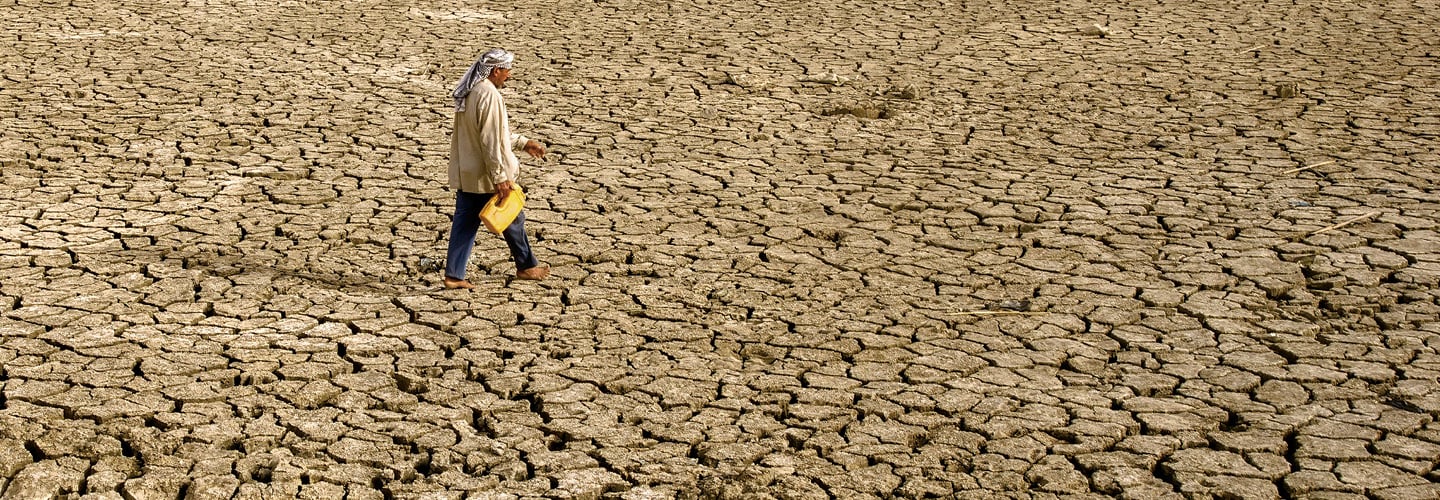Under a blazing sun on a treeless street, Abbas Abdul Karim, an experienced welder, labors over a metal bench, bending hot iron into stair railings. Everyone who lives in Basra, Iraq, deals with intense heat, but for Karim, it’s unrelenting.
“I feel it burning into my eyes,” he says.
Working outside in southern Iraq’s scalding summer temperatures isn’t just arduous. It can cause long-term damage to the body. By late morning, the air around Karim reaches a heat index—which measures heat and humidity combined—of 125°F. That puts him at high risk for heat stroke.
Under a blazing sun on a treeless street, Abbas Abdul Karim, an experienced welder, labors over a metal bench. He is bending hot iron into stair railings. Everyone who lives in Basra, Iraq, deals with intense heat. But for Karim, it’s unrelenting.
“I feel it burning into my eyes,” he says.
Working outside in southern Iraq’s scalding summer temperatures isn’t just arduous. It can cause long-term damage to the body. By late morning, the air around Karim reaches a heat index—which measures heat and humidity combined—of 125°F. It puts him at high risk for heat stroke.

